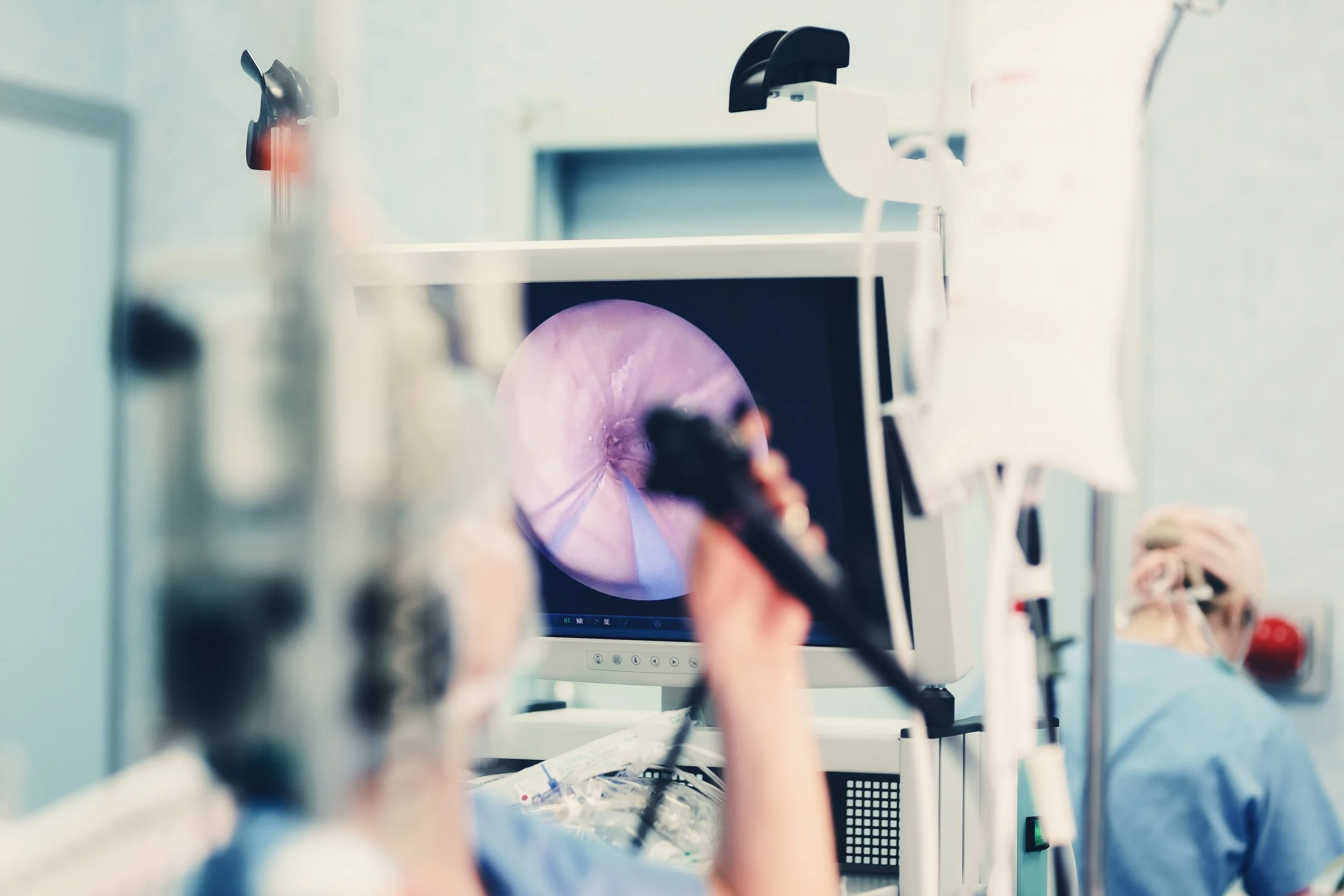You’ve heard us talk about colonoscopies here at the Colorectal Clinic of Tampa Bay before; we discuss this procedure so frequently because of its effectiveness in catching colorectal cancer (and other issues) before they become a threat to your health– and life. Now, we’re here to answer some of your most common questions about the colonoscopy:
What Is A Colonoscopy?
A colonoscopy is a simple procedure during which a long, thin camera is inserted into your rectum. Your scoping technician will also likely be a colorectal surgeon; this way, if anything abnormal comes up during your colonoscopy, your doctor can respond and act right away. This might involve taking a biopsy (a tissue sample) for closer evaluation by a team of lab technicians. During the scoping procedure, the doctor will be looking for anything abnormal: polyps, precancerous masses, cancer itself, and other benign issues.
When Should I Get My First Colonoscopy?
If you’re wondering when to get a colonoscopy for the first time, the standard recommendation is that patients at the age of 45 get their first scoping procedure. As we age, the likelihood of developing colon cancer (all types of cancer, really) increases. This is due to our body’s natural immune response towards rogue cells decreasing, as well as a higher risk of mutations as cells divide and replicate. You can be proactive about your health by scheduling regular colonoscopies and other cancer screening tests. Remember to begin screening much sooner than the age of 45 if you have a family history of any type of cancer, but especially colorectal cancer.
How Often Should I Schedule A Colonoscopy?
Patients between the ages of 45 and 75 need only one colonoscopy every ten years– unless there is a family history of colorectal cancer. Patients over the age of 75 can still get colonoscopies, but you and your doctor will talk about this together as you age. A colonoscopy gives your doctor a very detailed look at your colon; this is why you can go so long between scopes if you’d like.
How Do I Prepare For My Colonoscopy?
We aren’t going to lie; it’s not fun. You’ll have to take laxatives and drink tons of fluids, and you’ll probably feel pretty crappy. Just remember, during this time, that the goal and the benefits far outweigh how you’re feeling right now. You should also plan to take it easy after your exam. It’ll take a little time for your bowel and digestive systems to readjust to normal conditions, so take things slow and stick to simple, raw foods for the first few hours after your colonoscopy.
Are You Awake During a Colonoscopy?
Unless otherwise instructed by your doctor, you will be completely sedated for your procedure. You will be put under general anesthesia for your colonoscopy, and may still be very groggy when you wake up in the recovery room. For this reason, it is recommended that you have a friend or family member both bring you to the hospital and drive you home.
How Long Does it Take to Recover?
The main concern with recovery time from a colonoscopy is how long it takes for the sedative to wear off. Generally speaking, patients who are released from the hospital can resume normal activities as soon as they leave. If you are feeling groggy at all, take it easy; sedation has different effects on everybody.
As far as eating is concerned, you should also take it easy for the first 24 hours. You would have not only fasted but also taken laxatives in preparation for your colonoscopy. Be gentle with your body as you reintroduce food after that time. Start with soft foods like smoothies, fruit, and steamed vegetables for the first 12 hours. If your stomach handles it well, resume your normal diet.
What Is A Virtual Colonoscopy?
A slight variation on the traditional colonoscopy, a virtual colonoscopy is a procedure that involves a CT scan of the bowels. This is a quick procedure that can help rule out very obvious bowel issues; however, if your doctor discovers something concerning on the CT image, they will likely want to do a follow-up colonoscopy anyway. Luckily, the virtual colonoscopy can be incredibly helpful for patients who are overly sensitive to anesthesia, are at a greater risk of complications from anesthesia, or have weakened bowel walls that are more prone to perforation.
Colonoscopy in Tampa Bay
Here at the Colorectal Clinic of Tampa Bay, we perform many colonoscopies each week; in fact, we’re experts! If you need to schedule your first, second, or even third colonoscopy with a team of professionals that you can trust, don’t wait. Contact the team here today to schedule your appointment.

